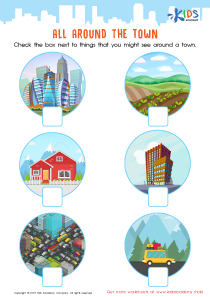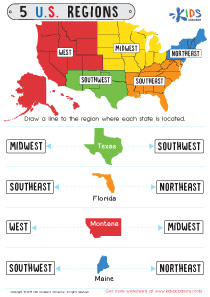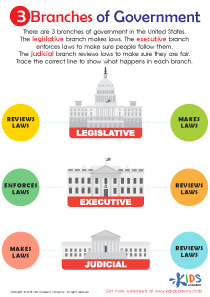Reading comprehension Normal History Worksheets for Ages 4-8
32 filtered results
Difficulty Level
Grade
Age
-
From - To
Subject
Activity
Standards
Favorites
With answer key
Interactive
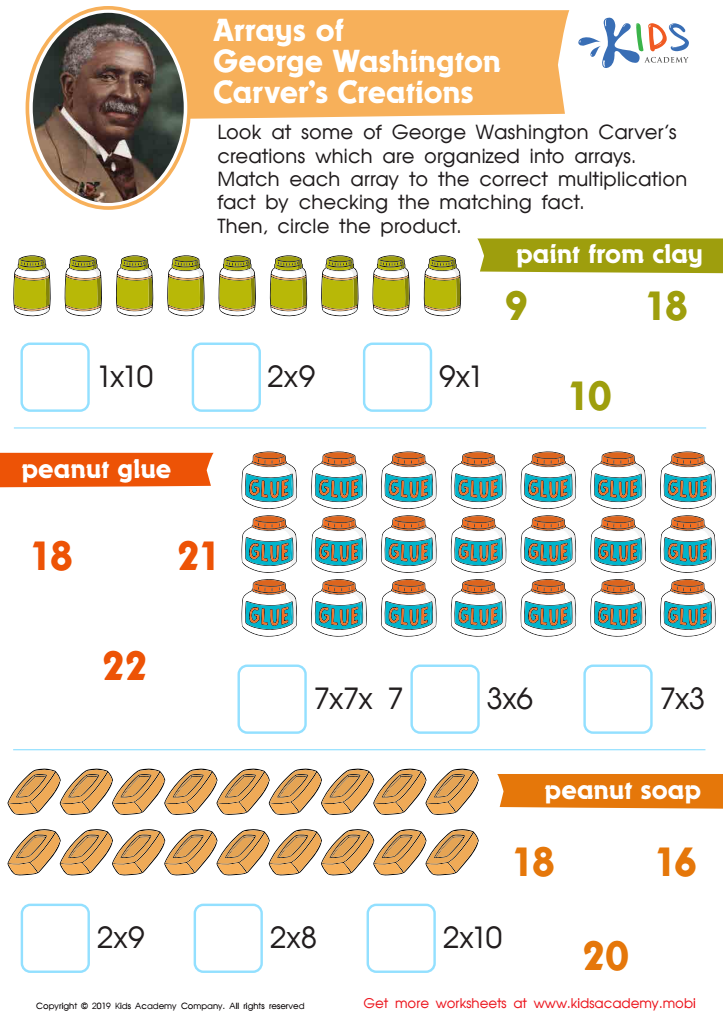

Arrays of George Washington Carver’s Creations Worksheet
Remind your child of what George Washington Carver created. Can they tell you? This worksheet has arrays with his creations. Match the array to the multiplication fact and help your child to circle the product.
Arrays of George Washington Carver’s Creations Worksheet
Worksheet
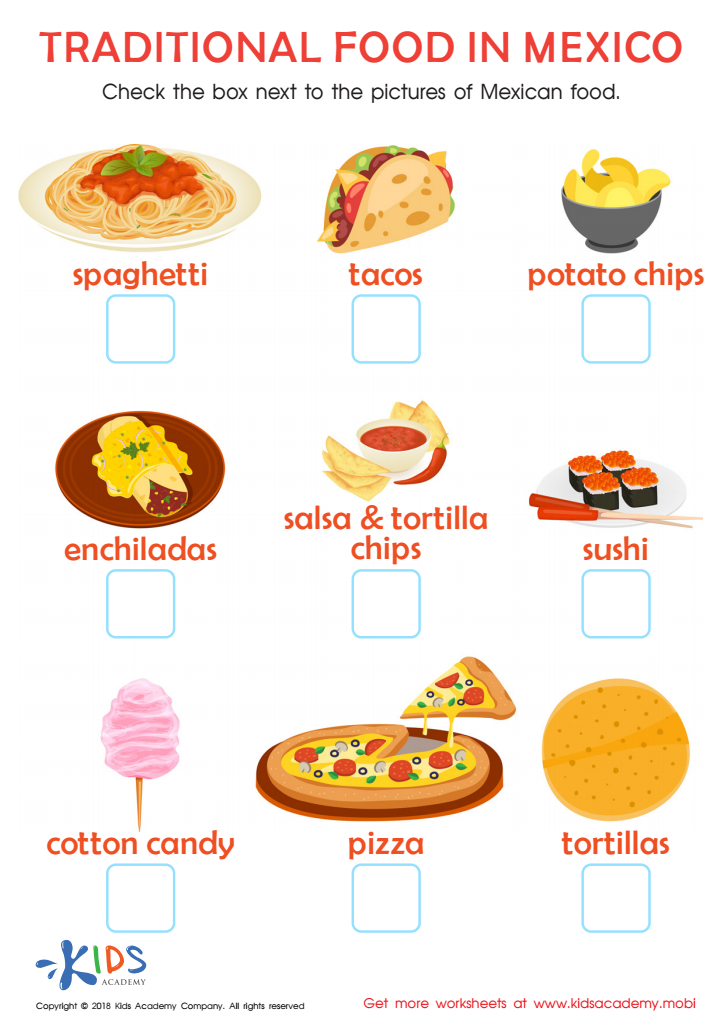

Traditional Food in Mexico Worksheet
This colorful worksheet offers a great opportunity to learn about traditional Mexican foods, build vocabulary and practice visual discrimination. As many of the words are not phonetic, this practice can help improve fluency, vocabulary and comprehension when encountered in reading. Culturally diverse, it's great for readers looking to expand their knowledge.
Traditional Food in Mexico Worksheet
Worksheet
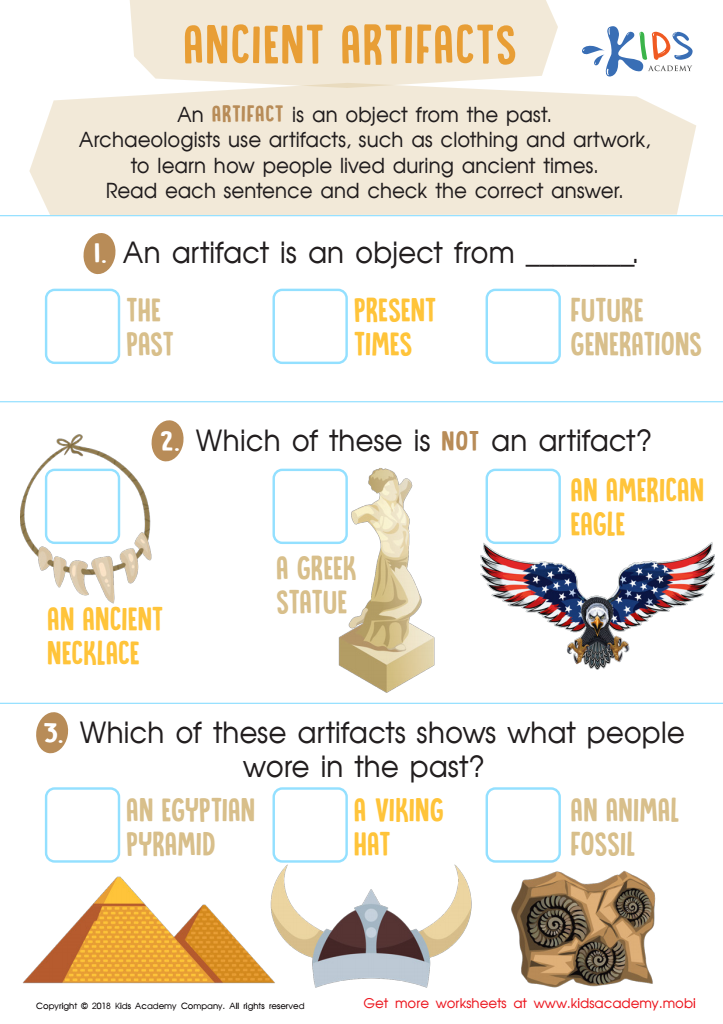

Ancient Artifacts Worksheet
This free worksheet helps kids understand ancient artifacts, from statues to necklaces to fossils. They'll read comprehension questions and select answers from multiple choice options, with pictures to help them grasp the concept. It's a great way for children to learn about artifacts and what they may look like.
Ancient Artifacts Worksheet
Worksheet
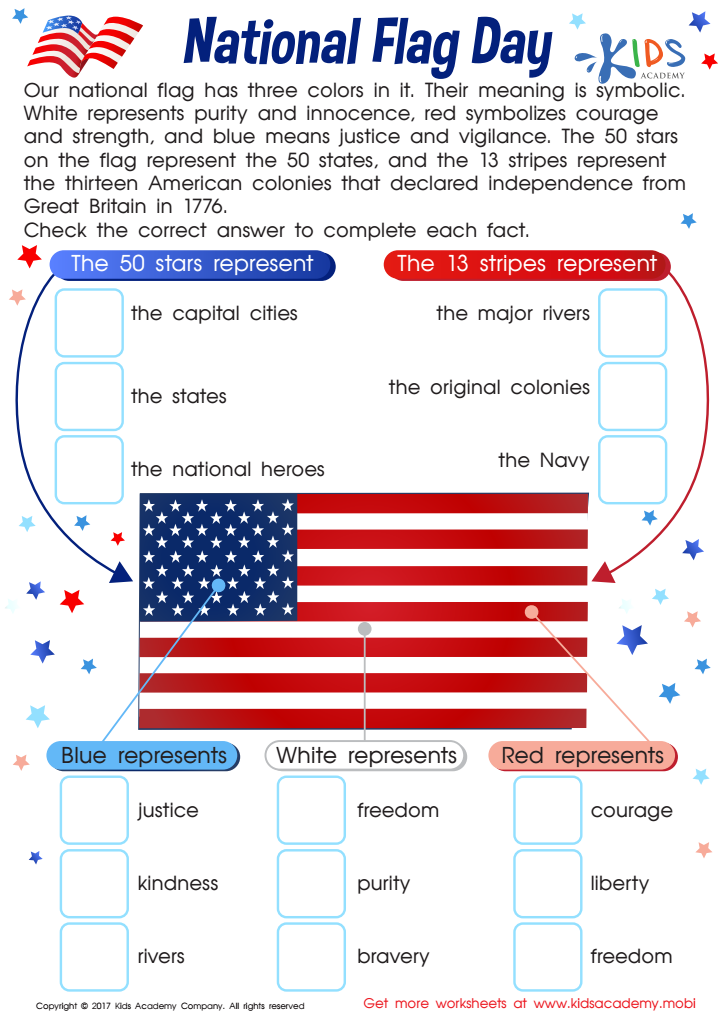

US National Flag Day Worksheet
Flag Day commemorates our nation's most iconic symbol: the American flag! This worksheet explains all the details, from the stars to the stripes, and helps kids understand the symbolism and importance of the flag. Even though it's not a federal holiday, it's still worth celebrating!
US National Flag Day Worksheet
Worksheet
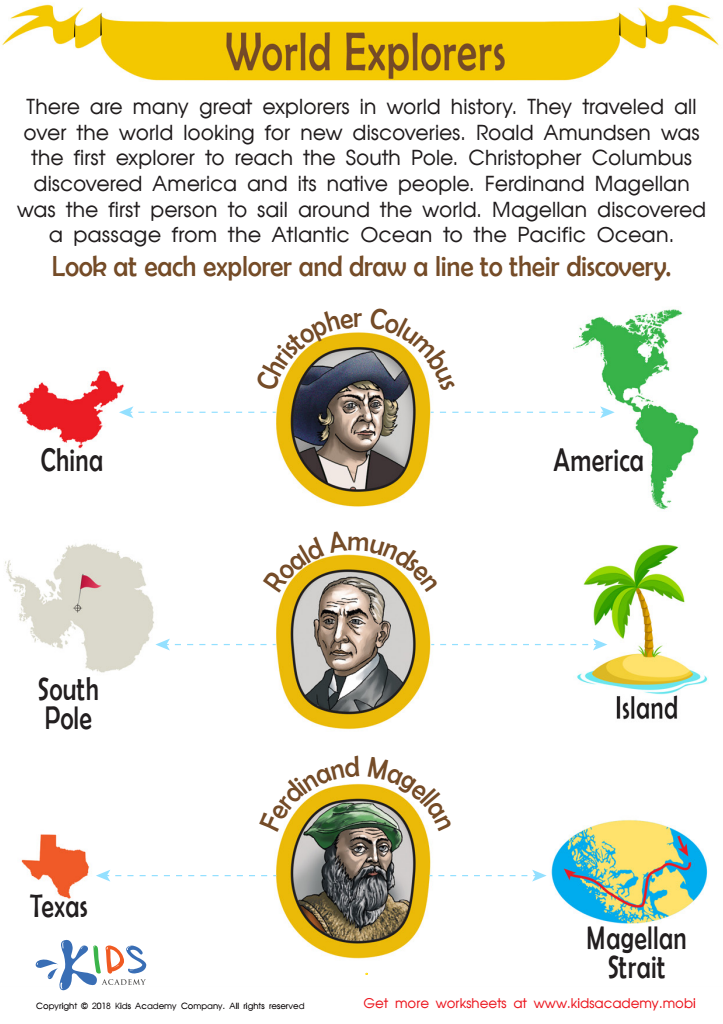

World Explorers Worksheet
Kids are citizens of the world, so it's important to teach them about different cultures and famous explorers. This social studies worksheet helps children learn about the great explorers of history and trace their travels. They'll link Ferdinand Magellan, Christopher Columbus and Roald Amundsen to the places they explored.
World Explorers Worksheet
Worksheet
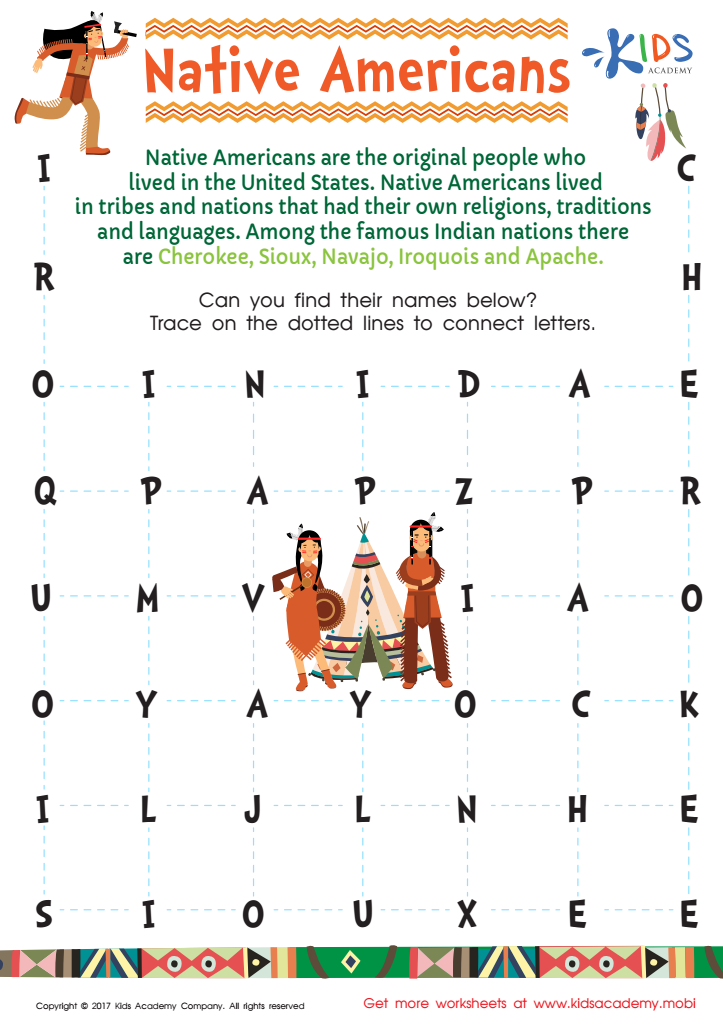

Native American Word Search Printable
This Native American word search PDF helps kids review important vocabulary and concepts about this important part of our county's history. It includes the names of famous and prominent Native American tribes. Solving the puzzle is fun and educative!
Native American Word Search Printable
Worksheet
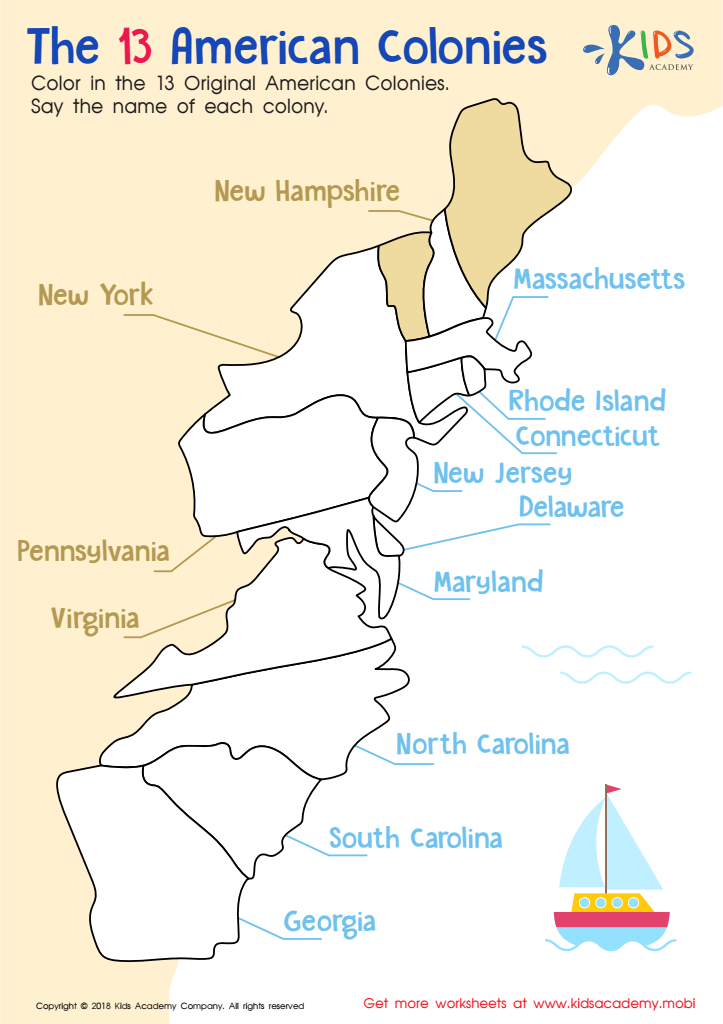

The 13 American Colonies Worksheet
Ensure kids are knowledgeable in maths, English, science, history, and geography. Test their American knowledge: Can they name the 13 Original American Colonies? Use the worksheet; have them color each colony and name it out loud.
The 13 American Colonies Worksheet
Worksheet
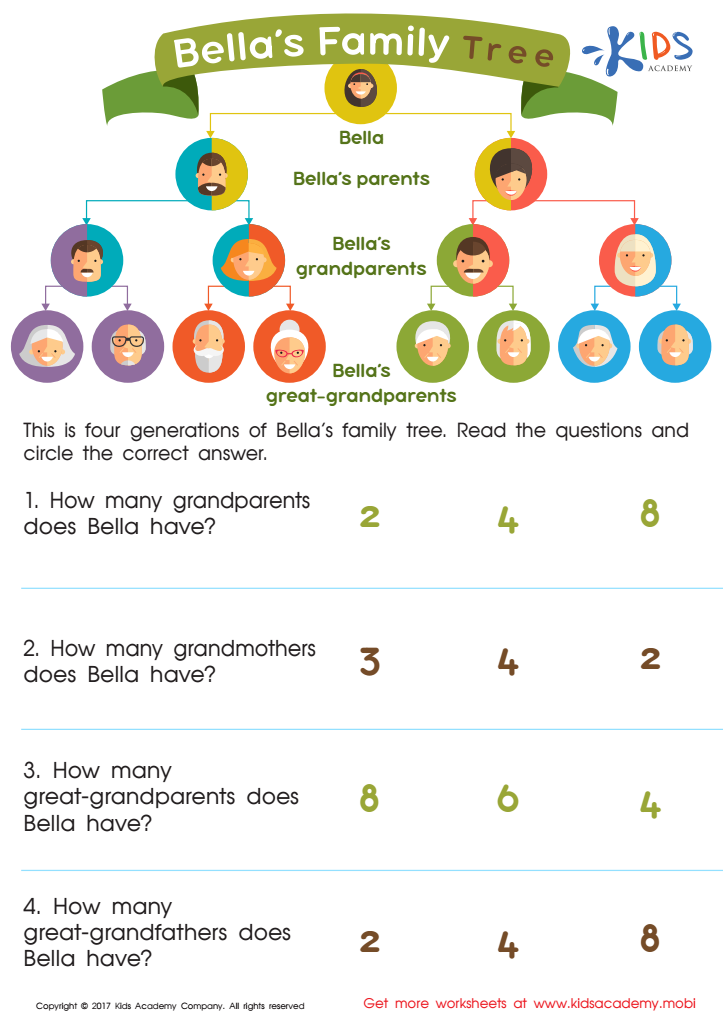

Bella's Family Tree Worksheet
Grade 2 kids learn 4 generations of a family with Kids Academy's new family tree worksheet. They explore Bella's tree, reading and answering questions about her grandparents and great-grandparents. It's an easy way to understand family relationships.
Bella's Family Tree Worksheet
Worksheet
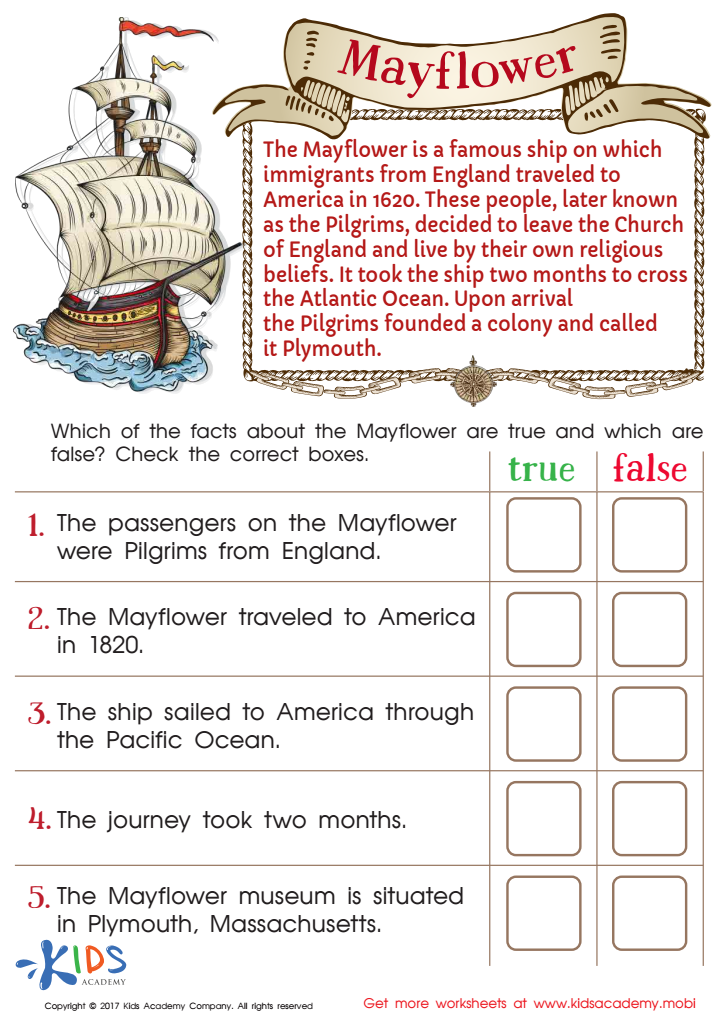

Free Mayflower Worksheet
Improve your child's knowledge of American history with this fun Mayflower worksheet! Have them read through and determine if each statement is true or false regarding the journey of the Mayflower. Download the free PDF and get started!
Free Mayflower Worksheet
Worksheet
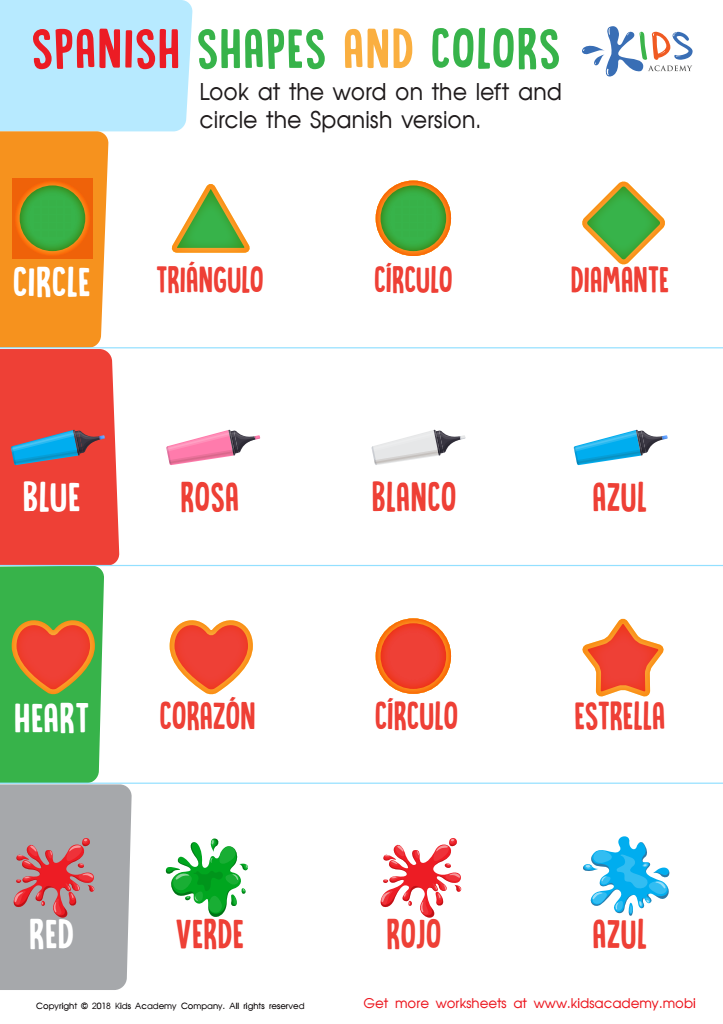

Spanish Shapes and Colors Worksheet
Encourage your children to learn another language from an early age. For example, Spanish - use a worksheet to help with the basics. Point to the English word and ask them to identify and circle the corresponding Spanish word on the right. This way, your kids will grow up with familiarity of the language.
Spanish Shapes and Colors Worksheet
Worksheet
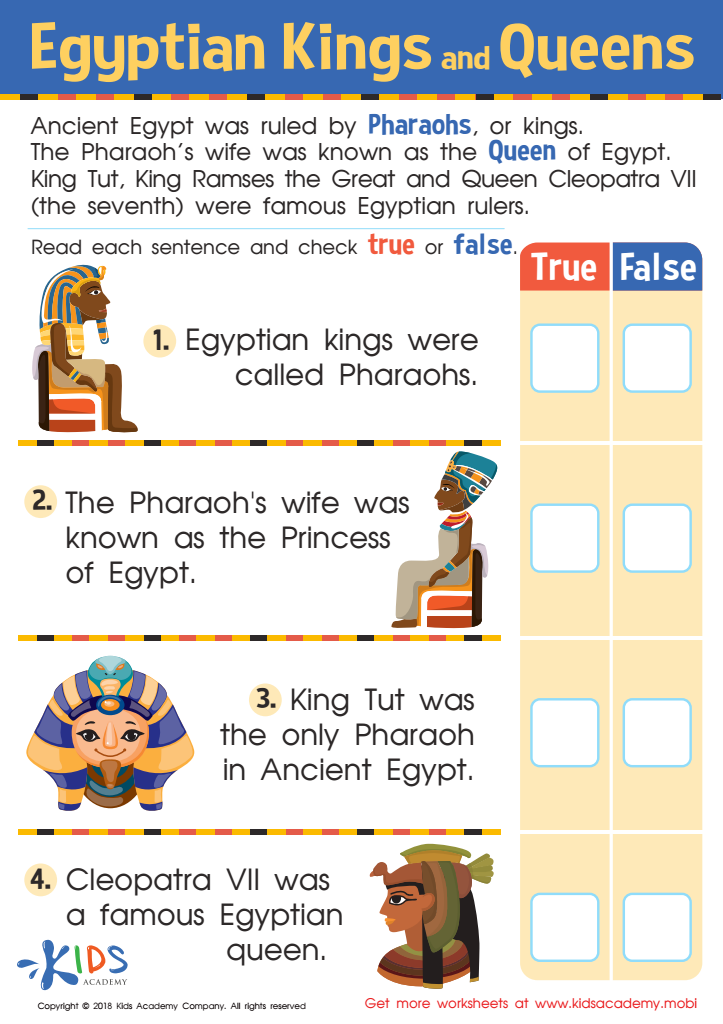

Egyptian Kings and Queens Worksheet
Want to help your child brush up on world history lessons? Kids Academy offers a fun social studies worksheet on Ancient Egyptian rulers. From King Tut to Queen Cleopatra, they'll learn about famous Egyptian rulers not found in modern times. The activity includes a brief description followed by true/false questions. Give it a try and see just how much your child knows!
Egyptian Kings and Queens Worksheet
Worksheet
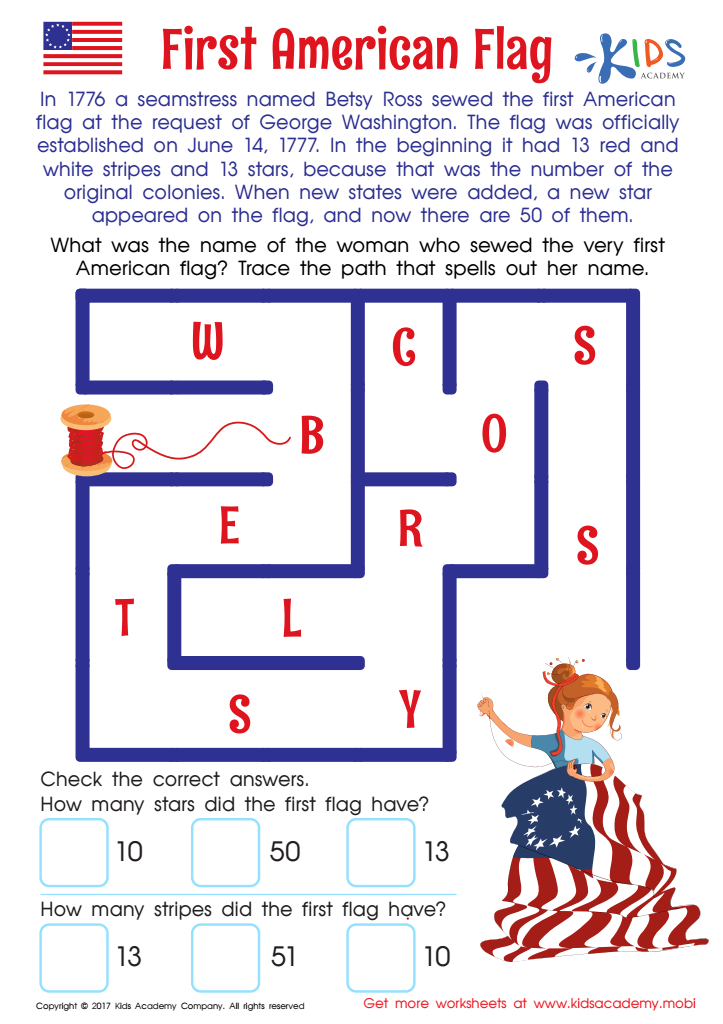

First American Flag Worksheet
Betsy Ross sewed the first American flag at the request of George Washington. This worksheet helps kids learn about this milestone in U.S. history, plus the design and origins of the flag.
First American Flag Worksheet
Worksheet
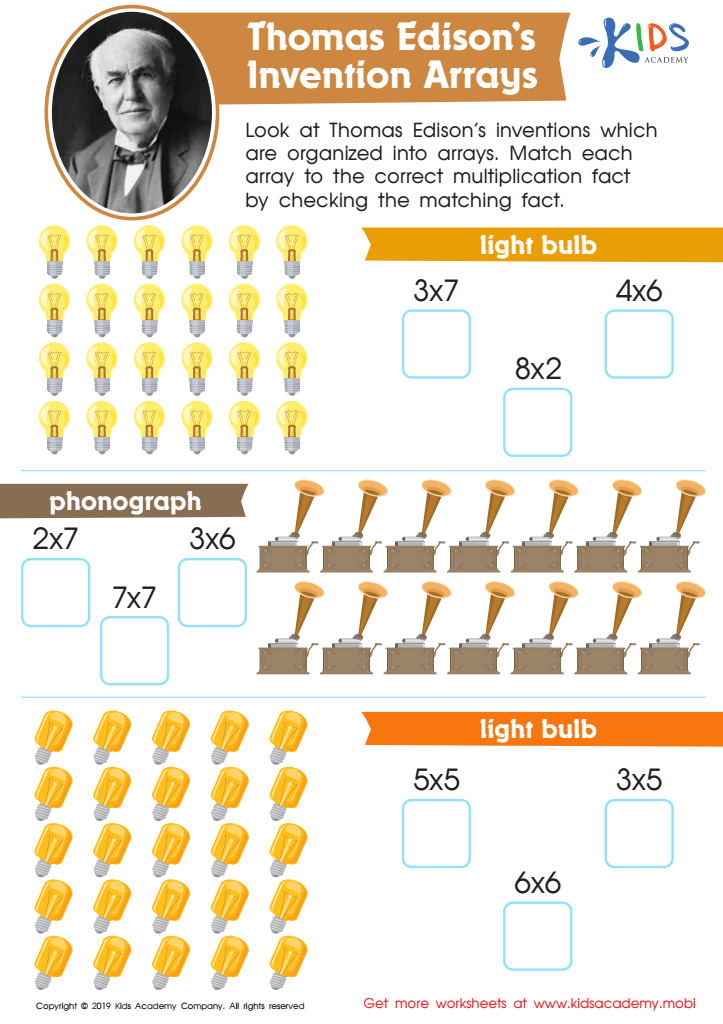

Thomas Edison’s Invention Arrays Worksheet
Test your students' knowledge on history by asking them what Thomas Edison invented. If they get the right answer, provide more information on other inventors. Check out this printout of Edison's light bulb inventions laid out in arrays. Get them to match each array to the correct multiplication fact.
Thomas Edison’s Invention Arrays Worksheet
Worksheet
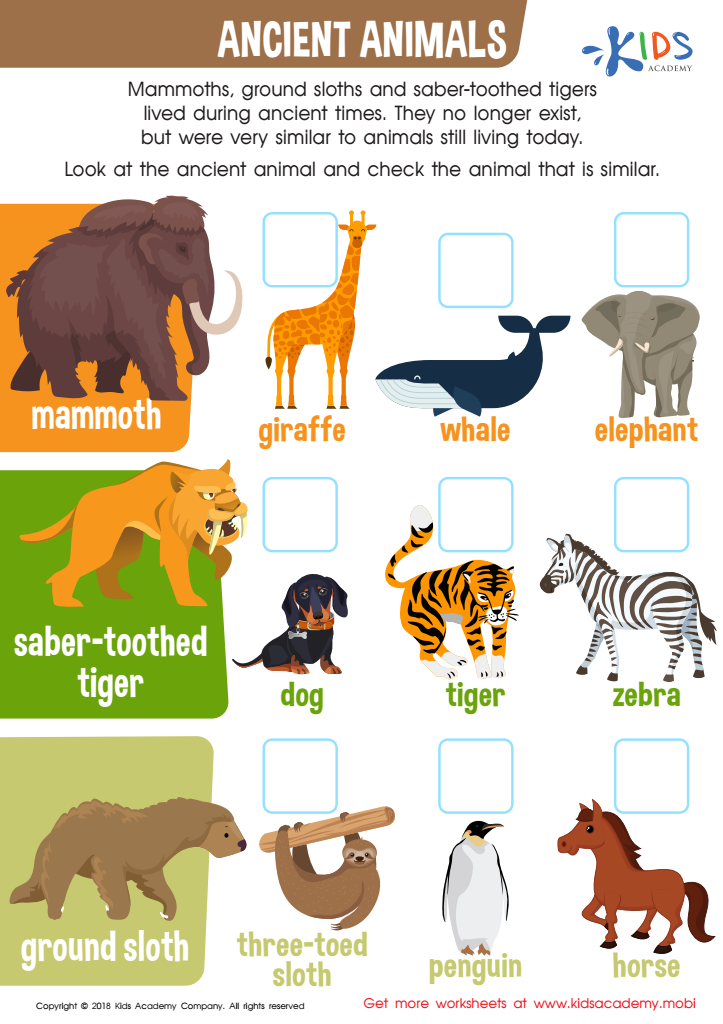

Ancient Animals Worksheet
Kids can explore prehistoric days with a fun, downloadable worksheet. They'll look at pictures of ancient animals like mammoths, ground sloths and saber-toothed tigers and then choose the animal of today that most closely resembles their ancestor. Through this sheet, they can make connections between today's animals and the past.
Ancient Animals Worksheet
Worksheet
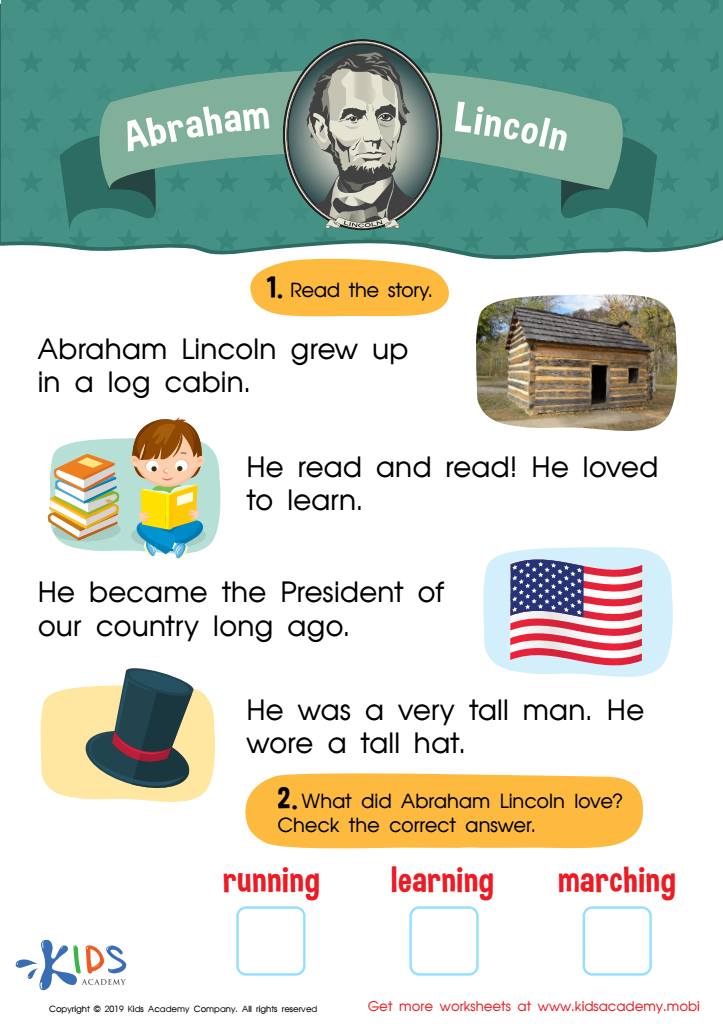

Abraham Lincoln Worksheet
Let your kids listen to interesting stories while having fun! Read the short story in this worksheet, point to the picture representing each sentence, then ask the questions and check the answers. Doing this will help your children learn new things and build their vocabulary.
Abraham Lincoln Worksheet
Worksheet
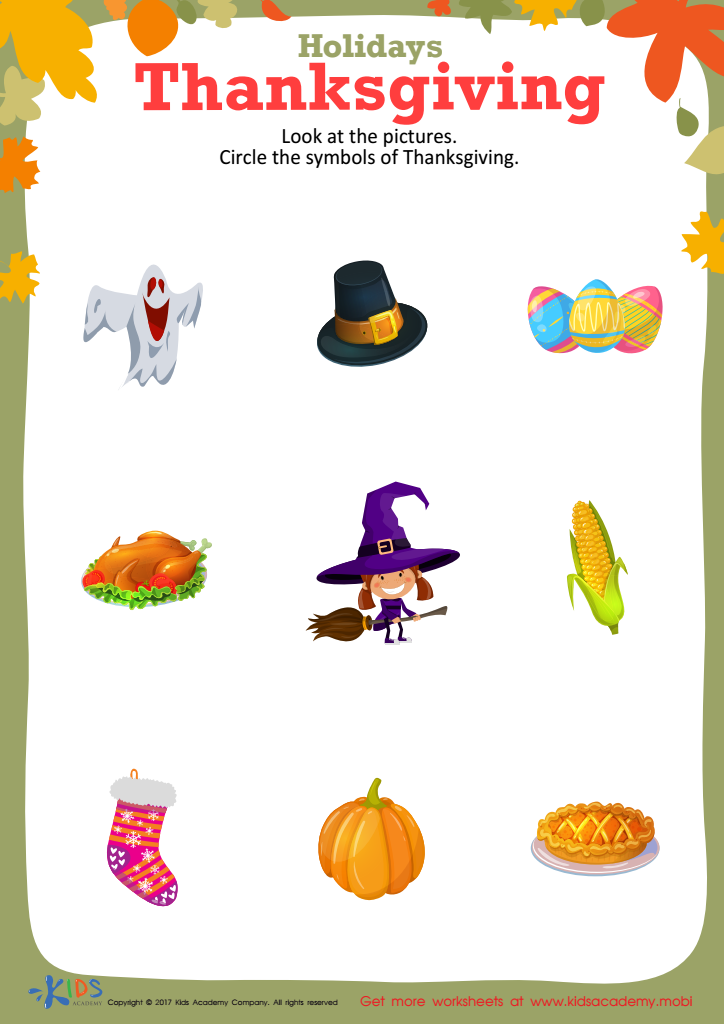

Thanksgiving Holiday Printable
Thanksgiving is here! Celebrate by showing appreciation and giving thanks. Teach your kids about the iconic symbols of the holiday with this free printable worksheet. Enjoy America's most famous feast!
Thanksgiving Holiday Printable
Worksheet
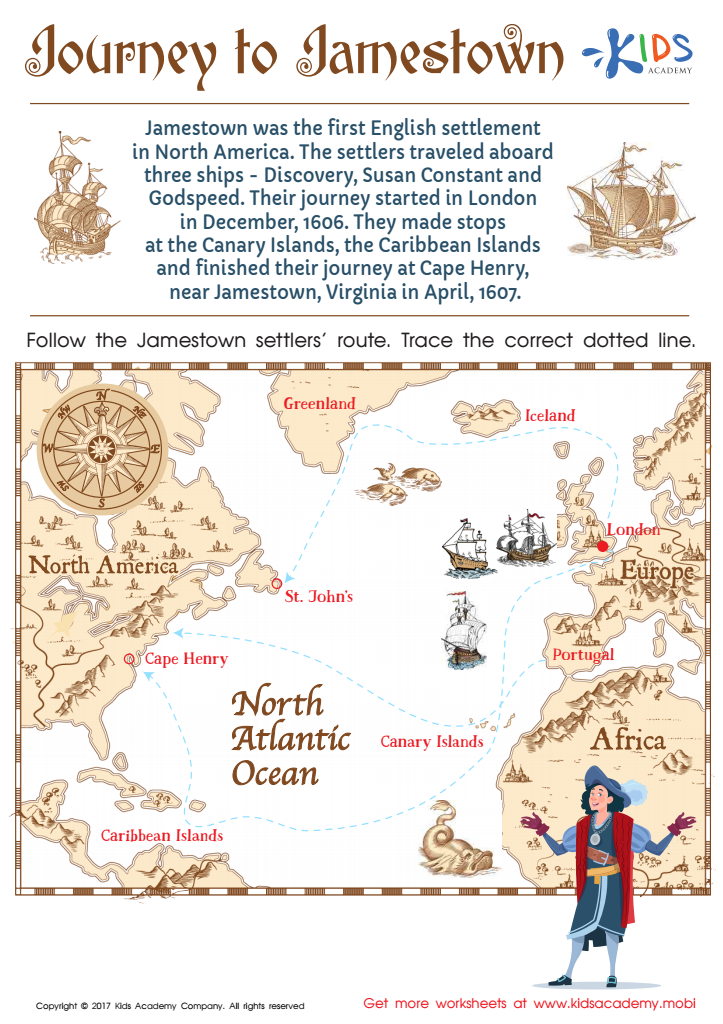

Journey to Jamestown Worksheet
Hit the high seas with this Journey to Jamestown worksheet and uncover the route the first pilgrims took to America! Kids explore a map and learn about stops the pilgrims made during their historic voyage.
Journey to Jamestown Worksheet
Worksheet
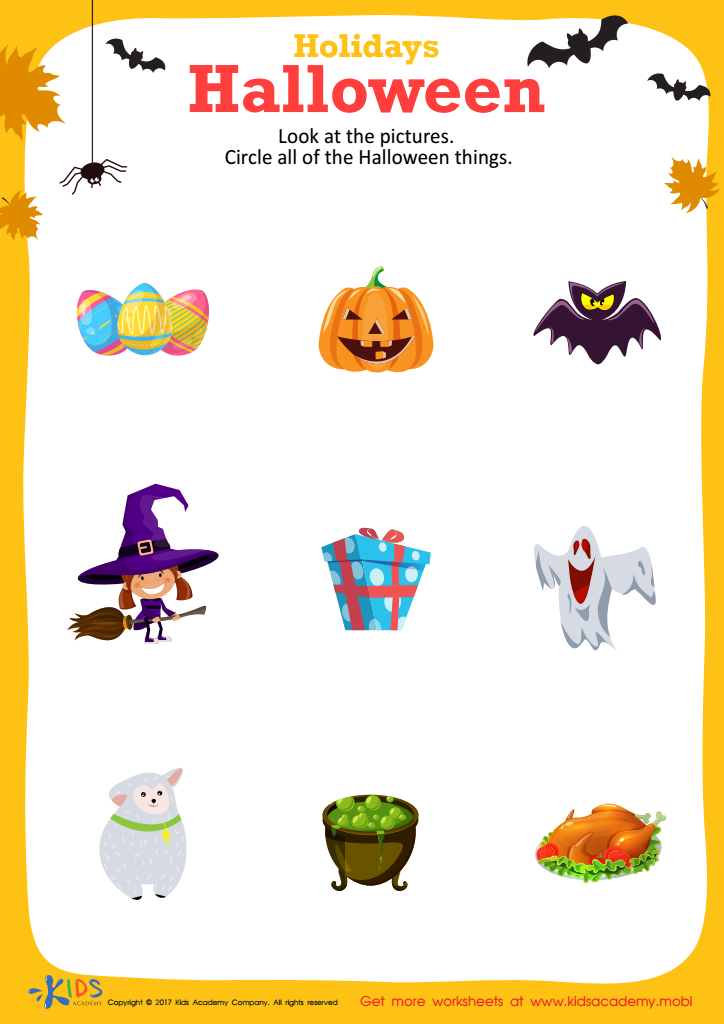

Halloween Holiday Worksheet
Gather your kids and get ready for a spooky review of Halloween symbols with this fun exercise! Max. 80 words
Gather your goblins and ghouls for a fun Halloween exercise! Review prominent symbols of the holiday with our free printable worksheet. It will excite your kids and reinforce the concept of symbolism. Get ready for a spooky review!
Halloween Holiday Worksheet
Worksheet
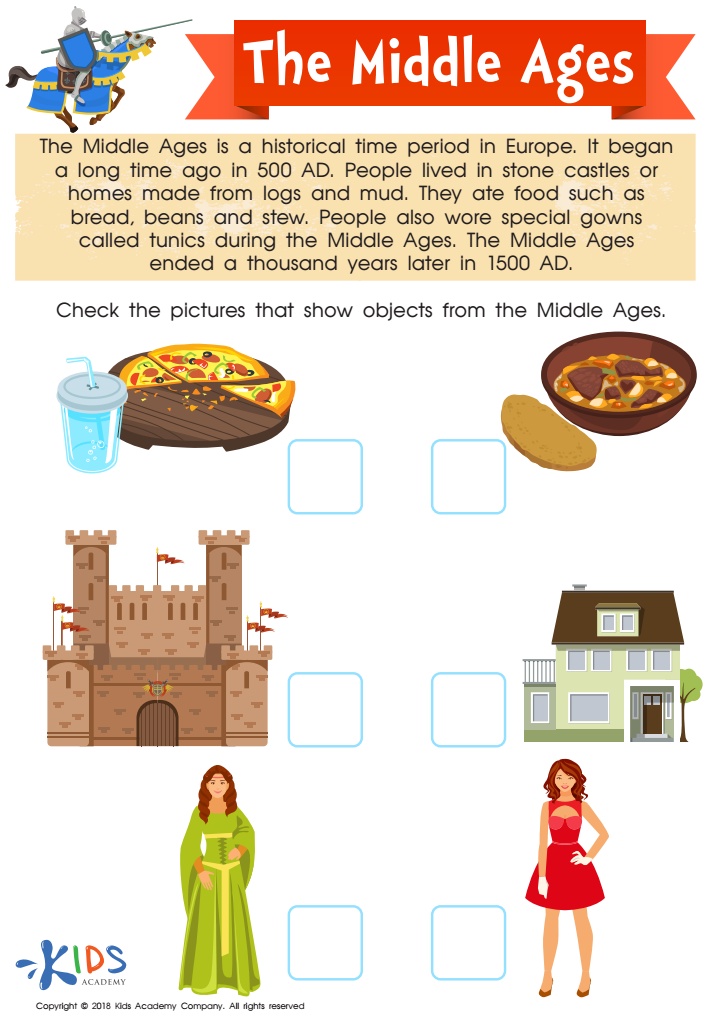

The Middle Ages Worksheet
History can be made exciting with this PDF! It encourages kids to compare and contrast the Middle Ages. They'll explore what people lived in, ate and wore back then, then compare those characteristics to modern day. Kids can check boxes next to pictures that represent the Middle Ages to complete the activity.
The Middle Ages Worksheet
Worksheet
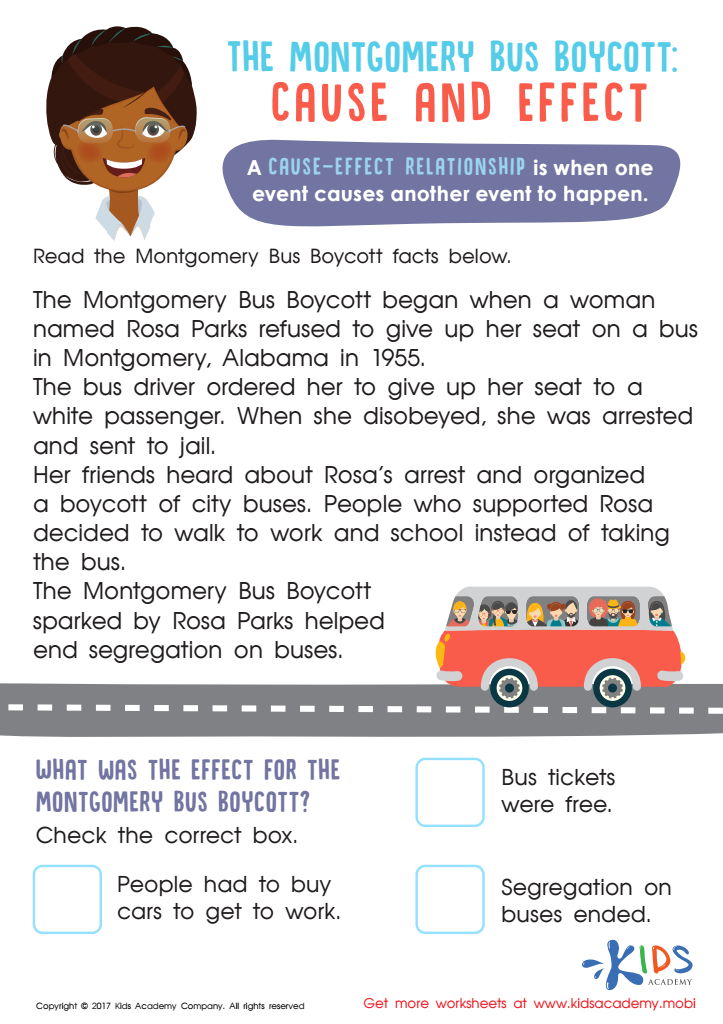

The Montgomery Bus Boycott Cause and Effect Worksheet
Kids Academy's cause-effect worksheet PDF introduces 2nd graders to cause-effect relationships through the Montgomery bus boycott. Kids read the story based on real facts and check the answers to demonstrate their understanding.
The Montgomery Bus Boycott Cause and Effect Worksheet
Worksheet
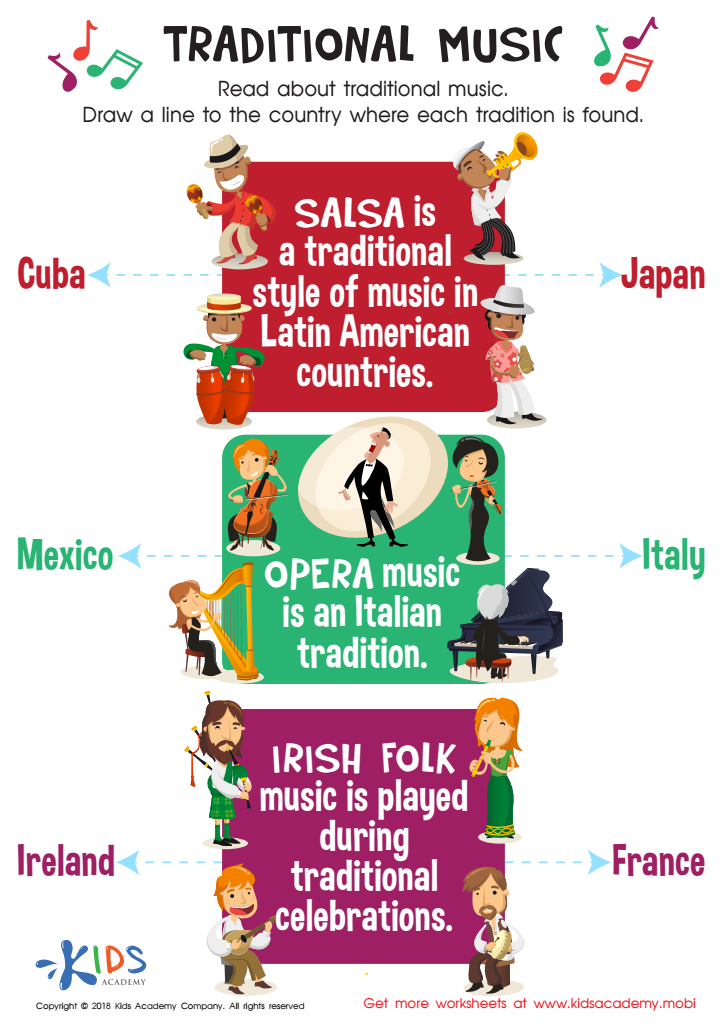

Traditional Music Worksheet
Exploring different countries' music is a great way for global learners to appreciate their place in the world. This worksheet helps them match music - like Salsa and Irish Folk - to various geographic regions with colorful visuals. It boosts reading comprehension while supporting their cultural understanding.
Traditional Music Worksheet
Worksheet
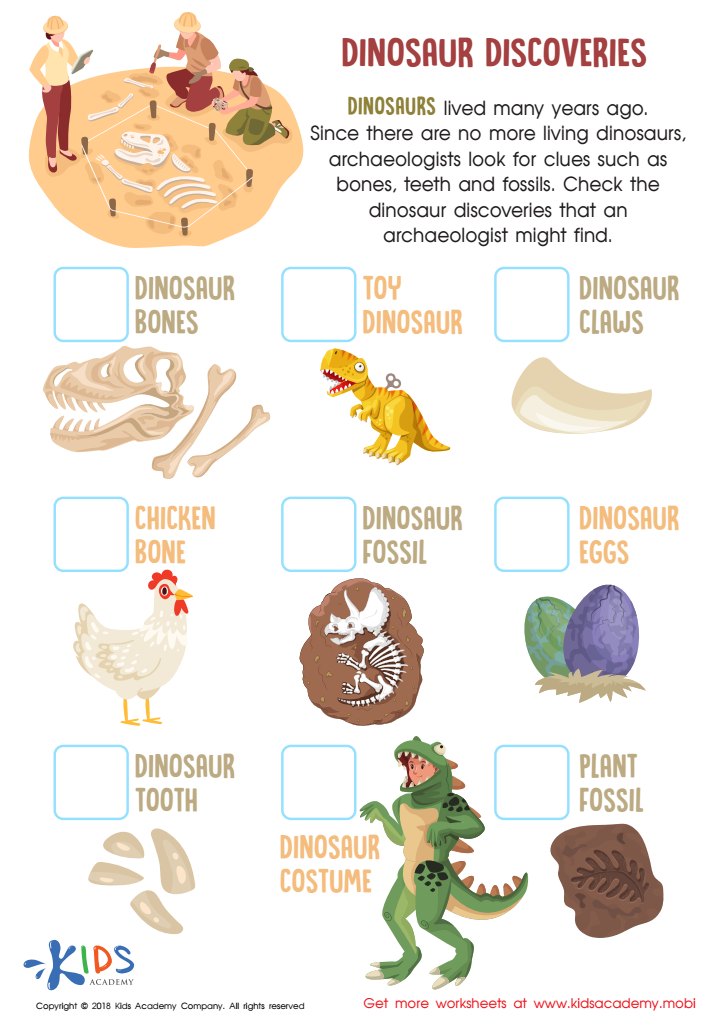

Dinosaur Discoveries Worksheet
Kids love the fascinating world of dinosaurs! This free worksheet educates them on how archeologists discover clues from their fossils, teeth, and bones. They'll identify items that are fossils with the help of pictures and choices provided. Learning has never been this fun!
Dinosaur Discoveries Worksheet
Worksheet
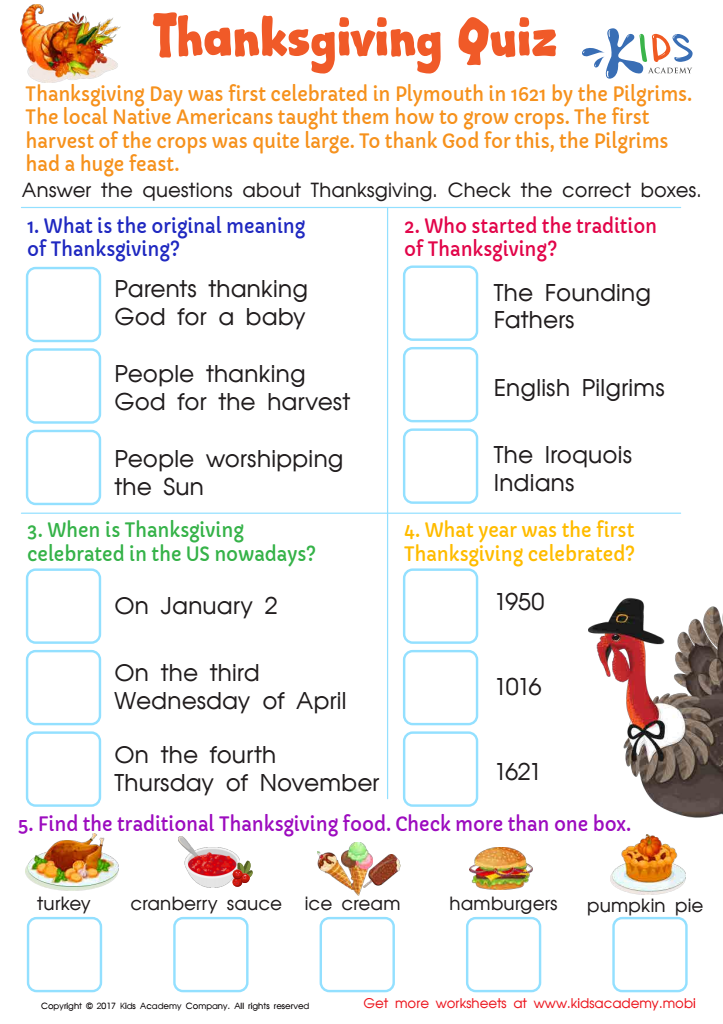

Thanksgiving Quiz Worksheet
Help your child learn more about Thanksgiving while improving their non-fiction reading skills with this intriguing quiz worksheet! It will expand their historical and national knowledge, all while providing meaningful context to this important holiday.
Thanksgiving Quiz Worksheet
Worksheet
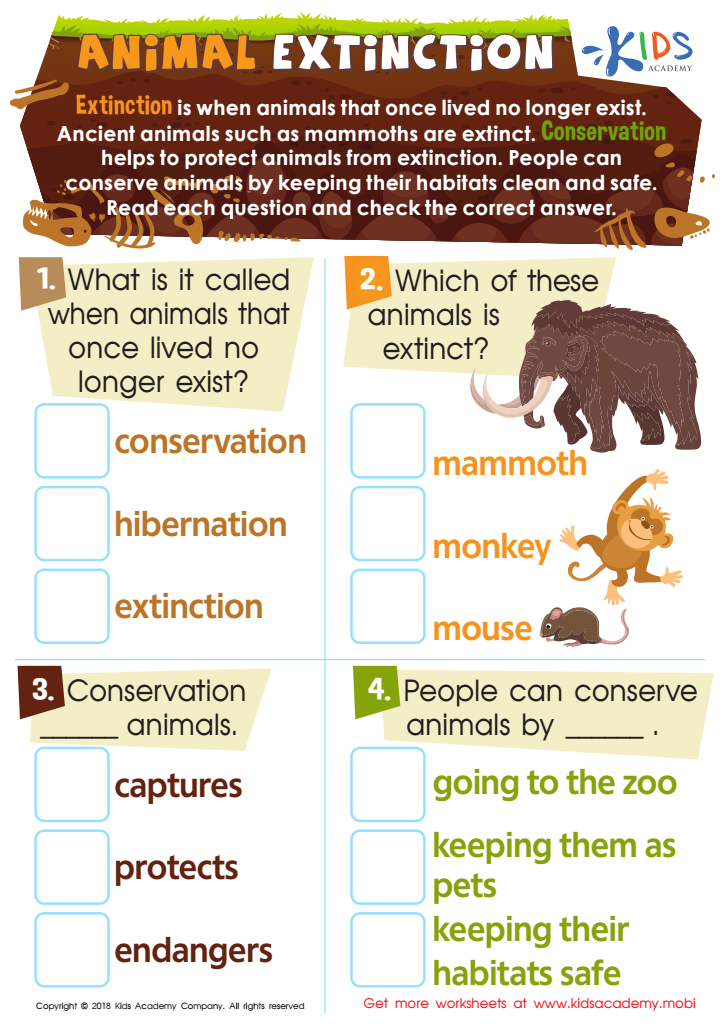

Animal Extinction Worksheet
Children can learn how their actions can help endangered animals with this free PDF worksheet. It explains extinction, looks at the mammoth as an example, and poses questions about conservation. Keeping habitats clean and safe is key to protecting animals and keeping them abundant. Learning about this now can make a huge difference for future generations.
Animal Extinction Worksheet
Worksheet
 Assign to the classroom
Assign to the classroom






